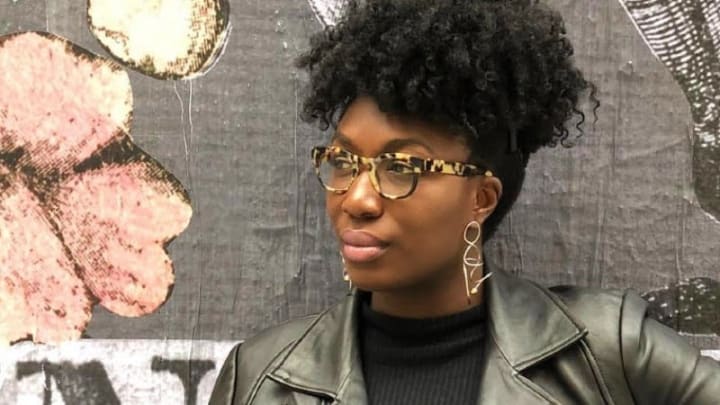INGOs can help dismantle development’s ‘white gaze,’ PopWorks Africa founder says
Every week, international NGOs looking to add African partners to their proposals reach out to Population Works Africa.

Too often, representatives of these NGOs have not done their research, according to Stephanie Kimou, founder and lead consultant at the consulting firm, which seeks “to disrupt the historically white space of power in international development.”
“How do we bring partners closer to sources of funding and decision-making partners so they can be treated as partners, not as implementation arm?”
— Stephanie Kimou, founder, Population Works Africa
Rather, funders have asked these NGOs to identify African partners in order to prepare a competitive bid, and so they reach out to a wide range of organizations on a tight deadline in what feels like a box-checking exercise, Kimou said.
“If INGOs are interested in partnering with individuals who have the expertise, cultural competencies, and who are inherently better positioned to lead sustainable work in Africa, they could learn about us first and tell us why we could be a value add, and why we should ever consider a partnership with them!” she wrote in a post published on LinkedIn.
International development institutions are coming under fire for perpetuating the power dynamics of colonization through their work. Kimou and her team are developing resources, such as an online course, for INGOs to understand why and how to approach equitable partnership with African institutions. This work follows from the experience of receiving emails from organizations that are upholding colonial definitions of partnership as they prepare bids for donors.
“Number one: How dare you? Number two: You wasted an hour of my time interrogating me when I’m better placed to do this work than anyone on your team. Number three: If you’re looking for African partners, please read about them, give them respect by allowing them to prepare, and tell them why they should consider a partnership with you,” Kimou said in an interview with Devex.
Kimou said she sees three windows of opportunity for global development professionals to decolonize the way they work: dismantling the “white gaze,” fostering transparent partnerships with locally rooted partners, and elevating local expertise.
She often uses the term “white gaze” to capture the way international development prioritizes the experiences and desires of white people and white power structures.
That plays out in everything from monitoring and evaluation to storytelling and digital media to business development and fundraising, Kimou said.
Rather than developing indicators that are important to them and their funders in Washington or Geneva, NGOs can ask the people they serve about how they define success and then design their programs accordingly.
NGOs can also dismantle the white gaze by interrogating how they tell African stories, asking whether they are telling them for African people or for funders, and working with Africans to tell their own stories, Kimou said.
And rather than continuing to fund the large INGOs that they have always partnered with, funders can partner directly with grassroots organizations or work together with INGOs similarly committed to creating a framework for decolonizing their way of working.
“Western INGOs are able to raise a lot of money because the white power structures which fund them also trust them more than African institutions,” Kimou said.
She challenges donors and NGOs to fund African people directly, letting them be the architects of their own stories and futures, which she calls “funding courageously.” Open Society Foundations and Emerson Collective are two examples of funders that defy this stereotype, Kimou told Devex.
“It’s resource deployment — not ideology deployment, not values deployment, not white body deployment,” she said. “It’s ‘I’m humbled to even be providing this to you,’ instead of ‘here are the log frames or the 72 indicators we developed in D.C. you need to answer to even though you’re in Nigeria.”
Kimou does not see the moral imperative of decolonizing international development as a strong enough incentive for INGOs to make these changes. Rather, she said funders need to set new standards for what gets funded. For example, they could see to it that equity and justice are operationalized in budgets, she said.
White women are driving a lot of the progress in decolonizing international development, according to Kimou.
“I just can’t stress enough how important white women and their privilege and proximity to power are to this,” she told Devex.
Kimou mentioned the William and Flora Hewlett Foundation, which is prioritizing diversity, equity, and inclusion internally and through its grant-making, as an example of an institution in which white women are leading this transformation.
She said that three questions are key to fostering transparent partnerships with locally rooted partners: Who manages the money, who gets the full picture, and who has the last say?
“How do we bring partners closer to sources of funding and decision-making partners so they can be treated as partners, not as implementation arm?” Kimou asked.
True partnership means NGOs must relinquish power to locally rooted institutions, which requires elevating local expertise “over expertise and experts that are outside of the communities in which you seek to serve,” Kimou said.













